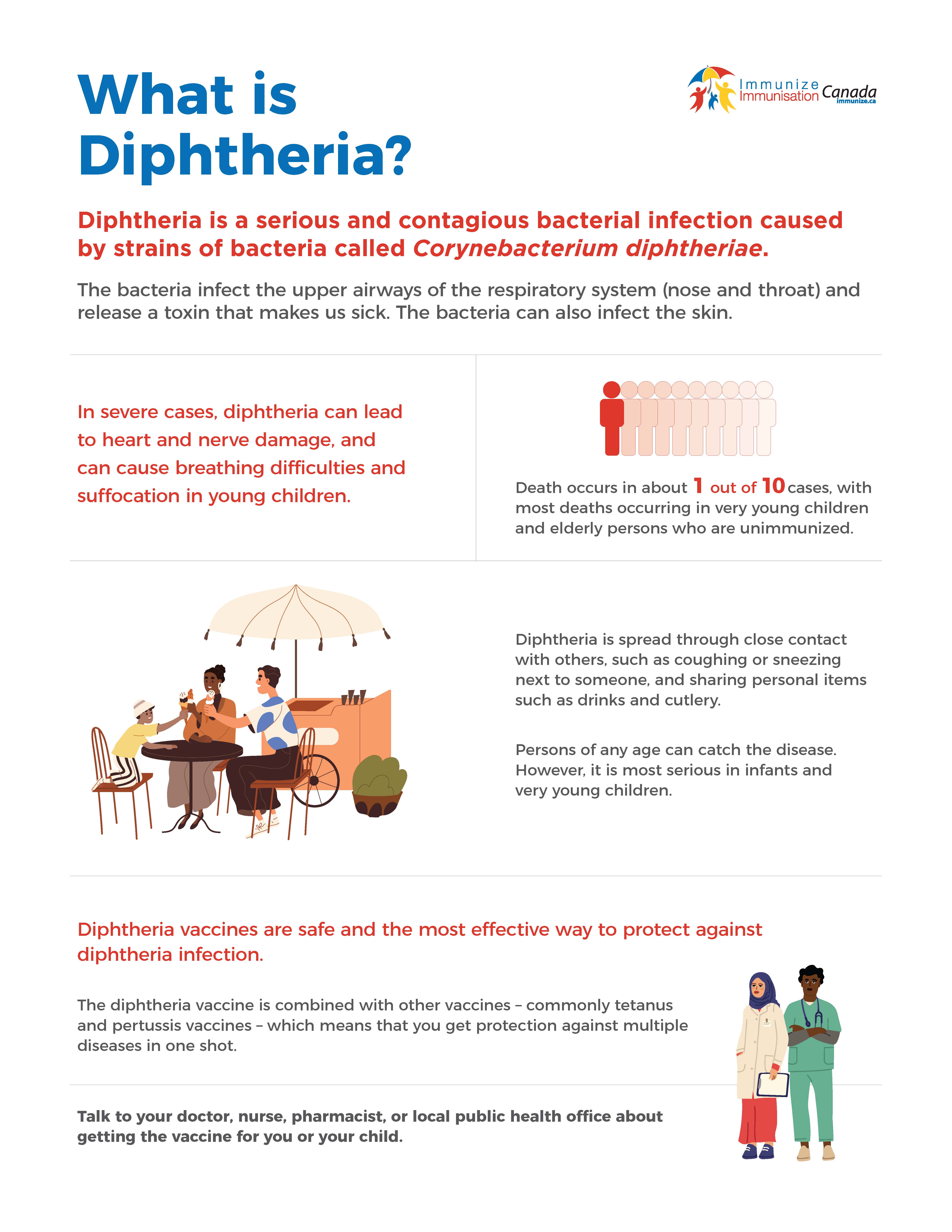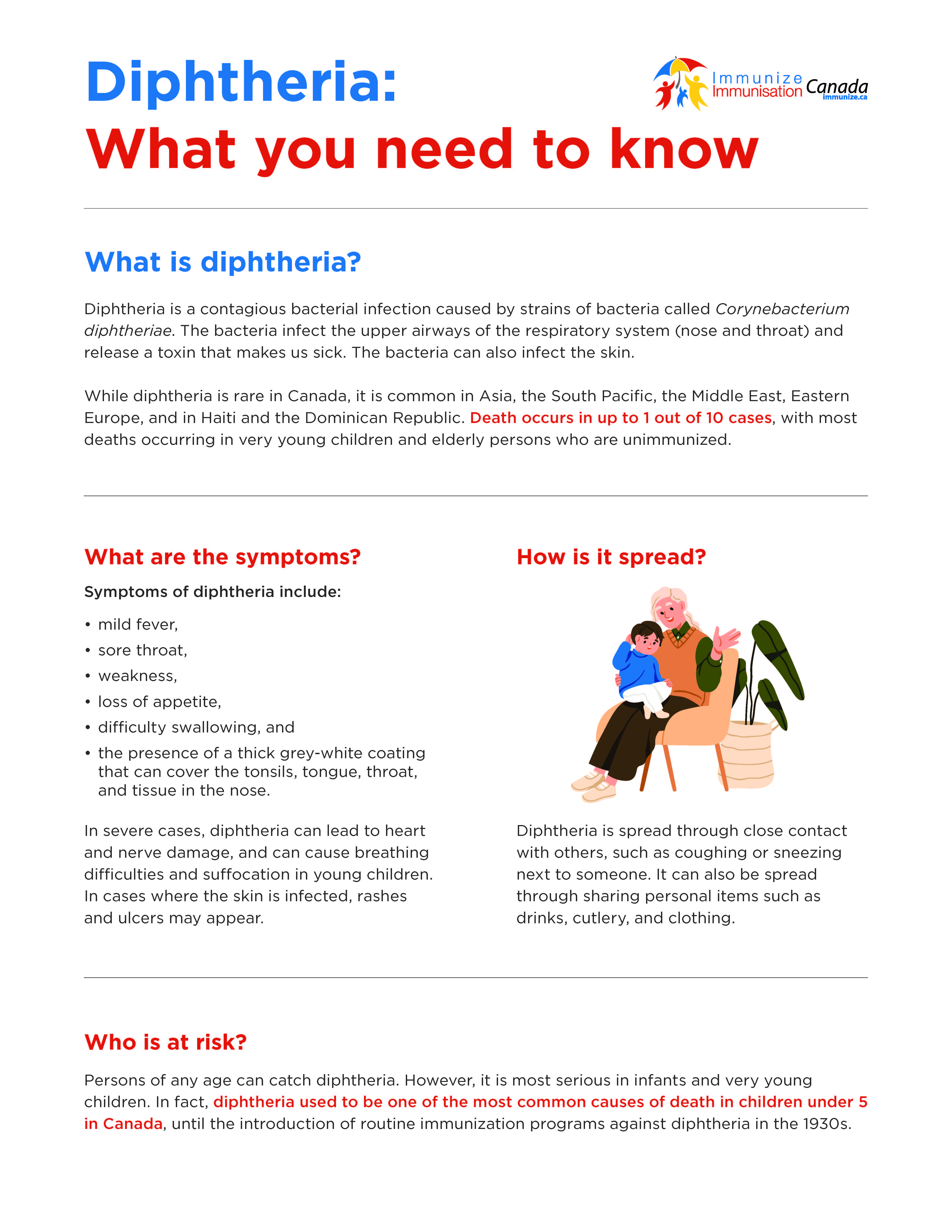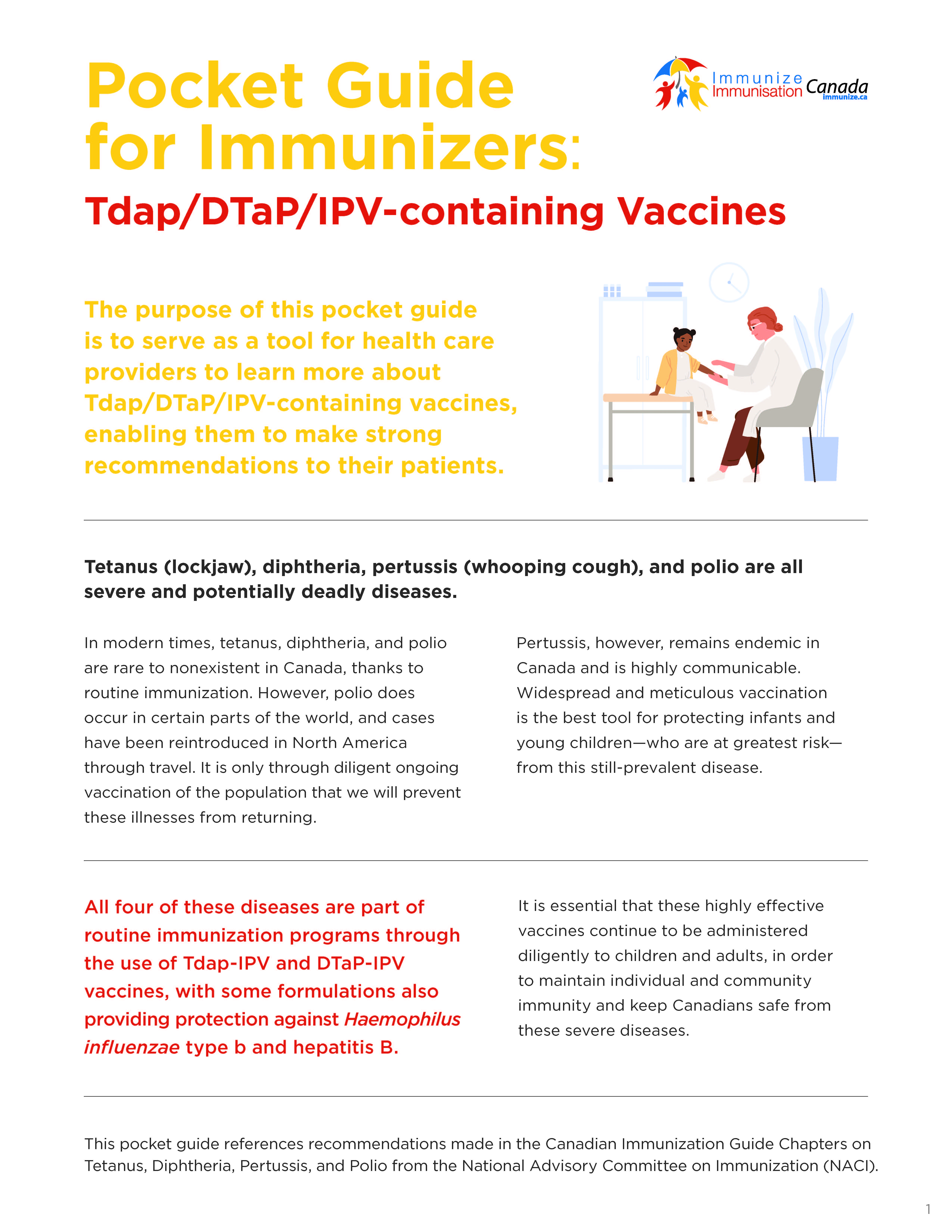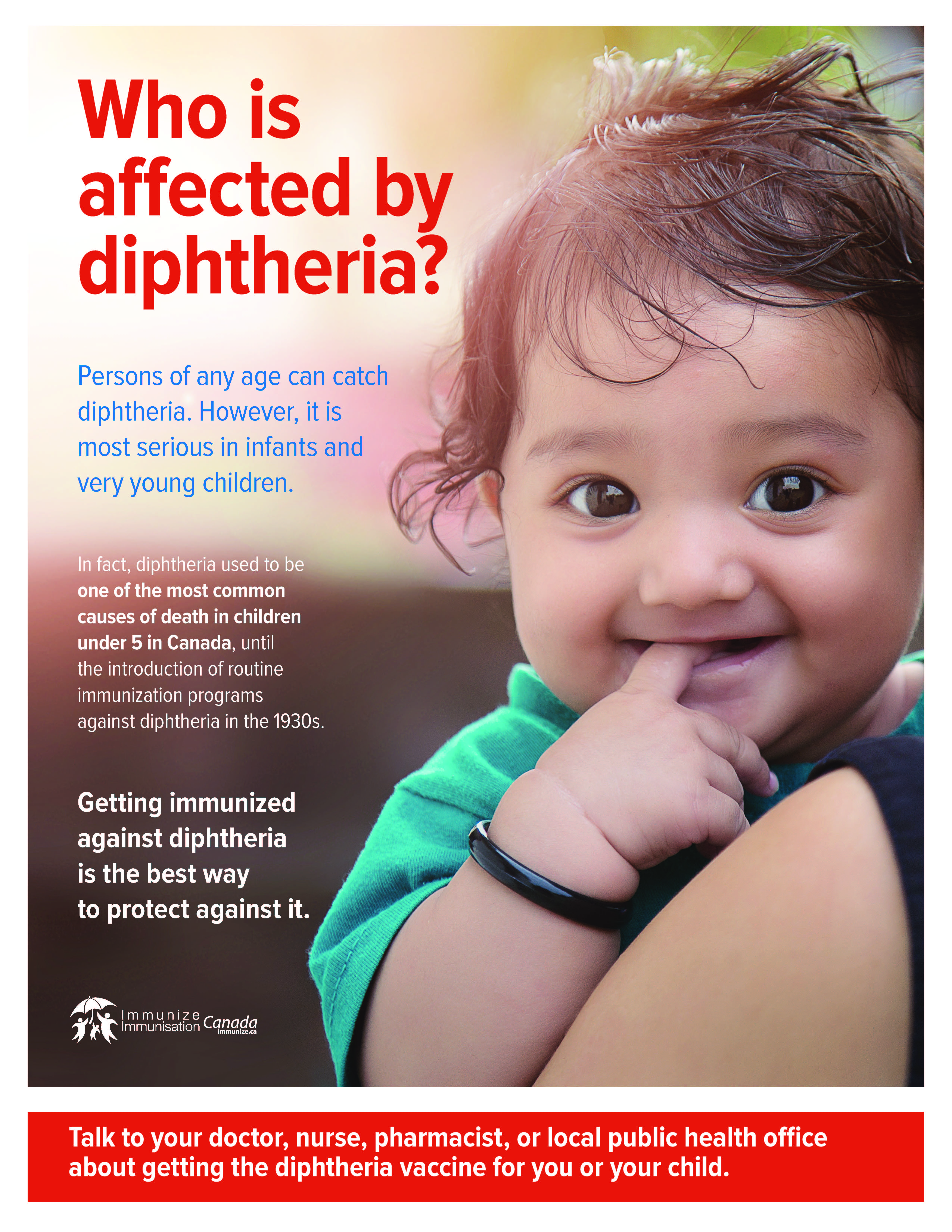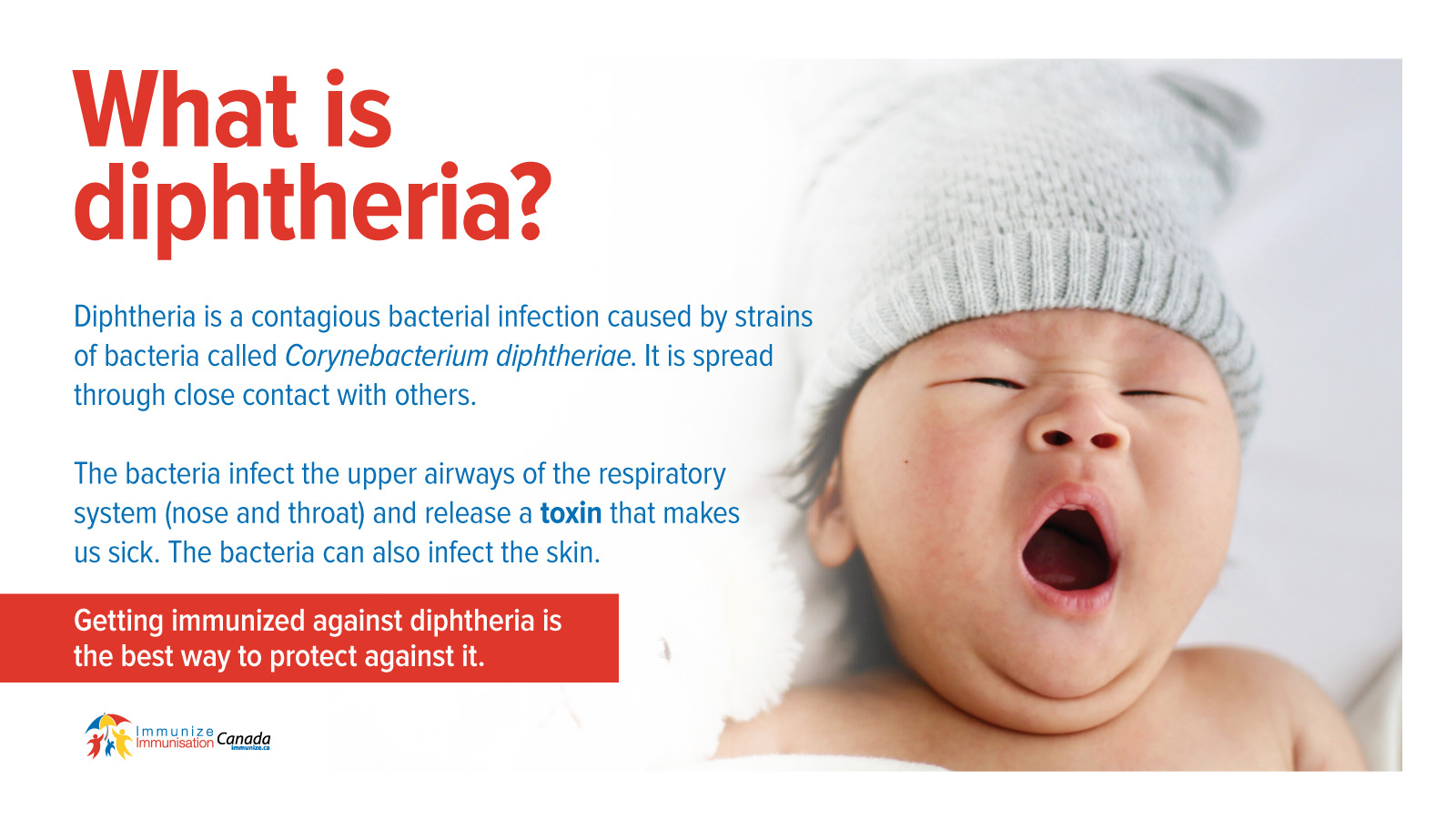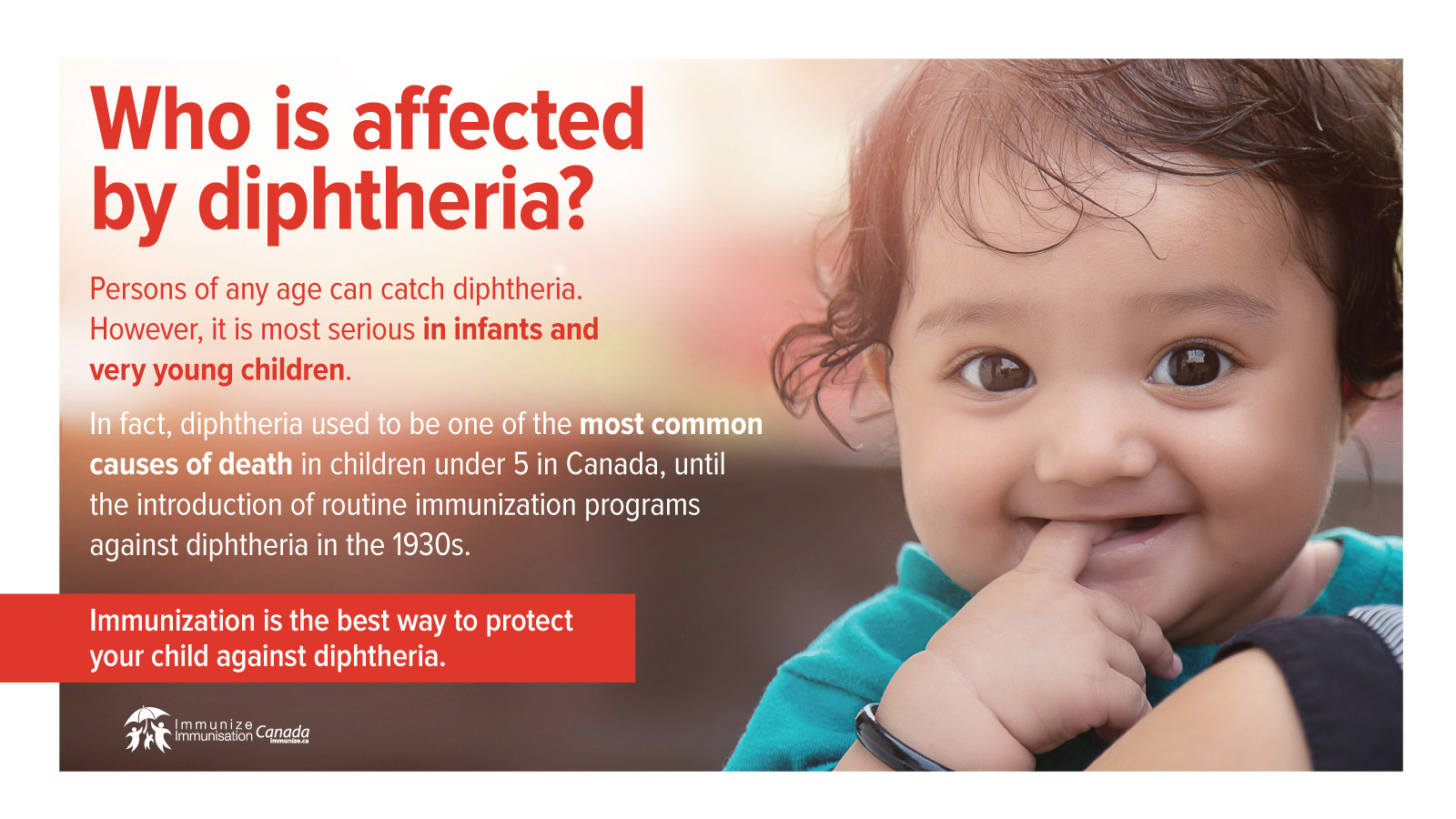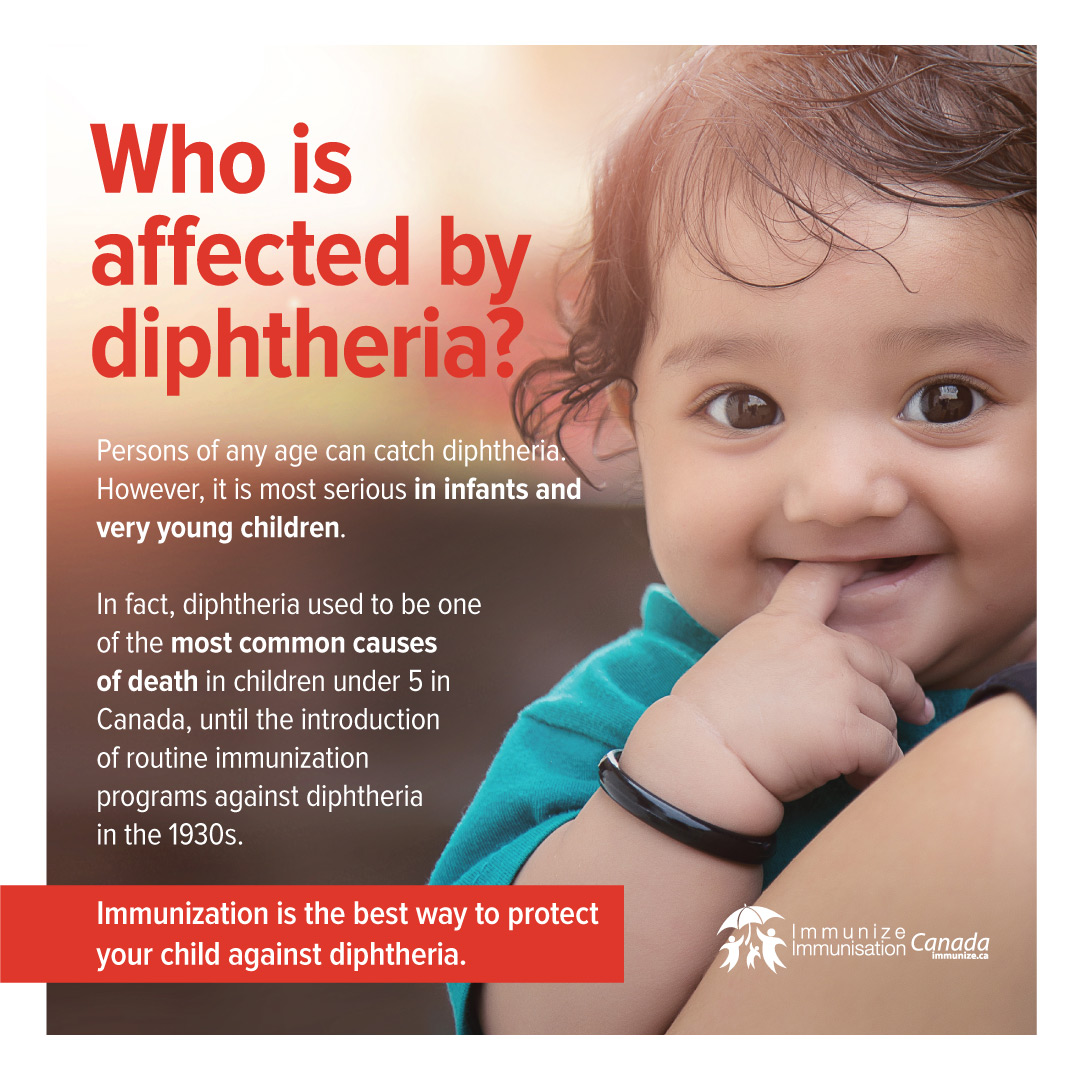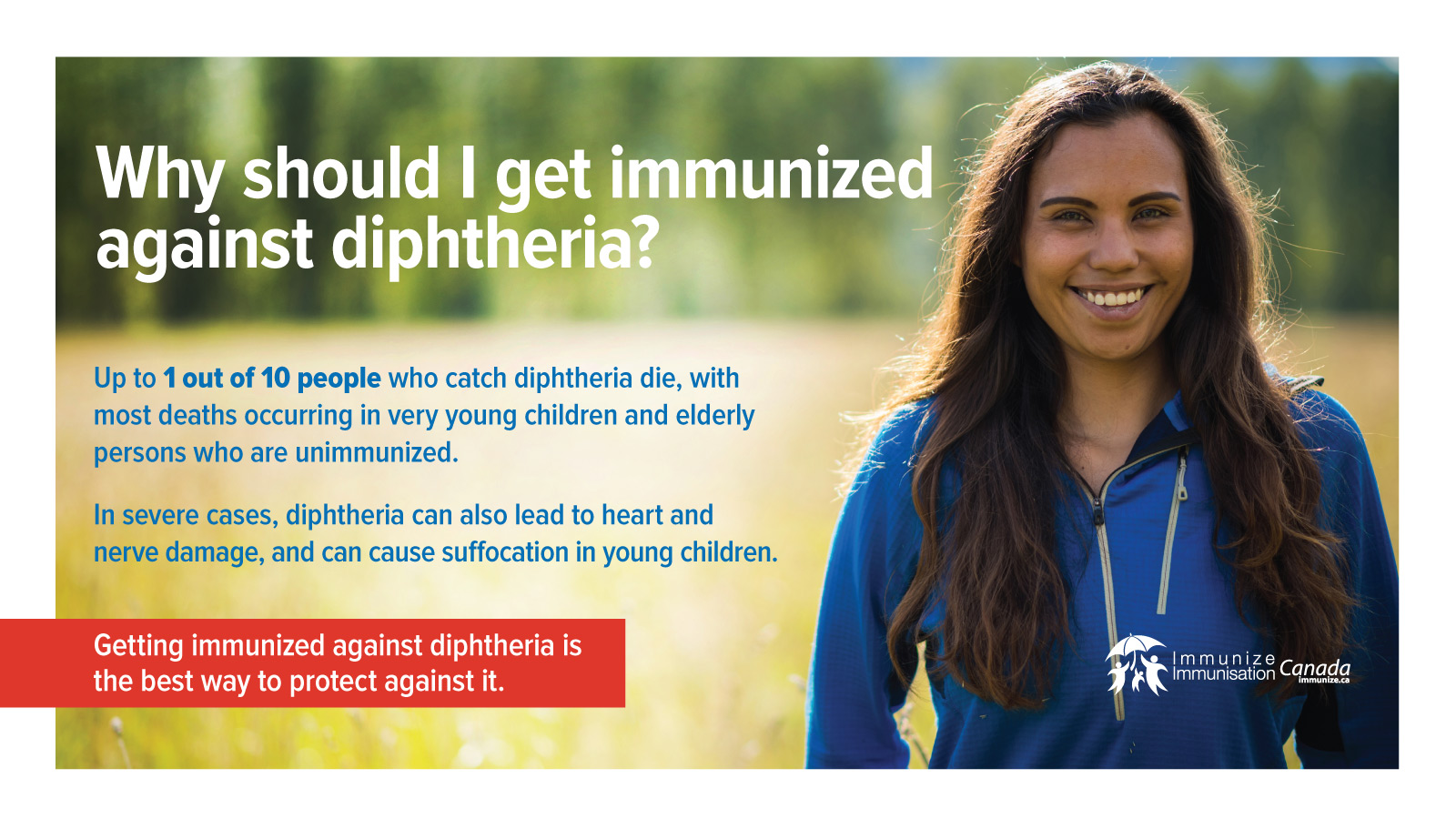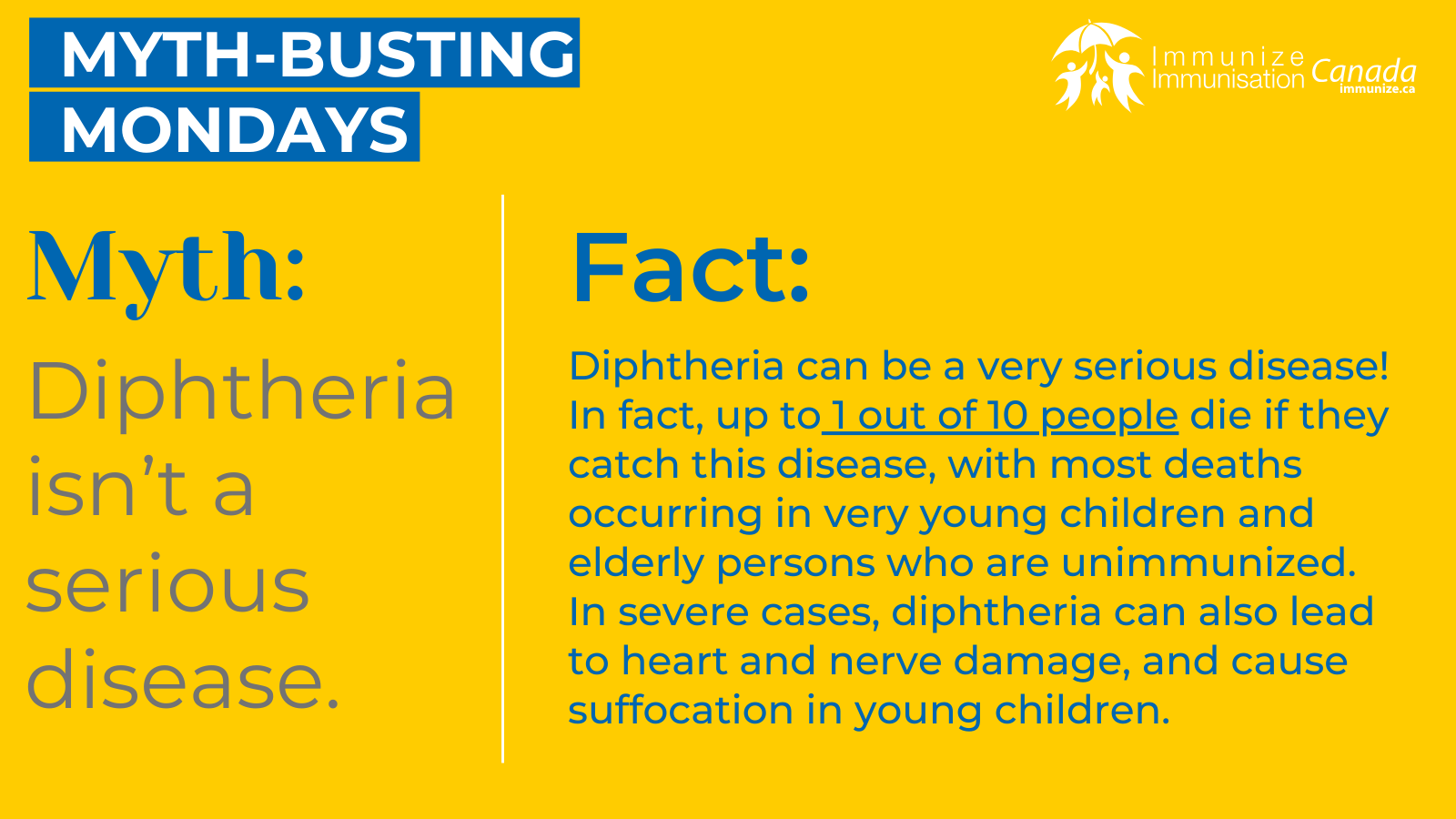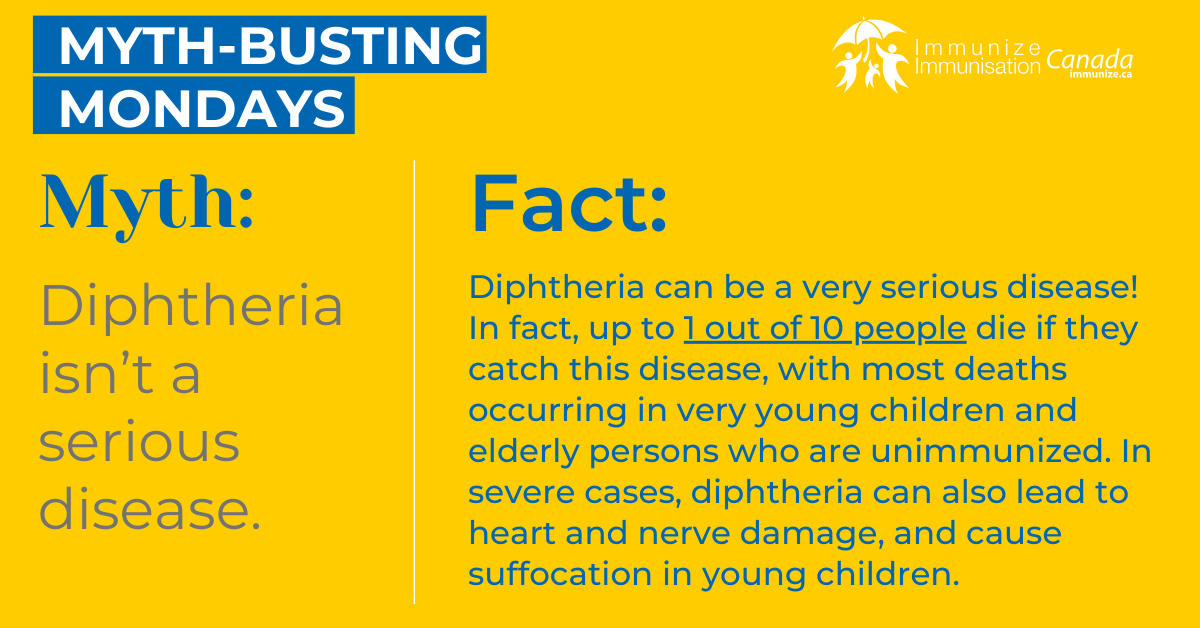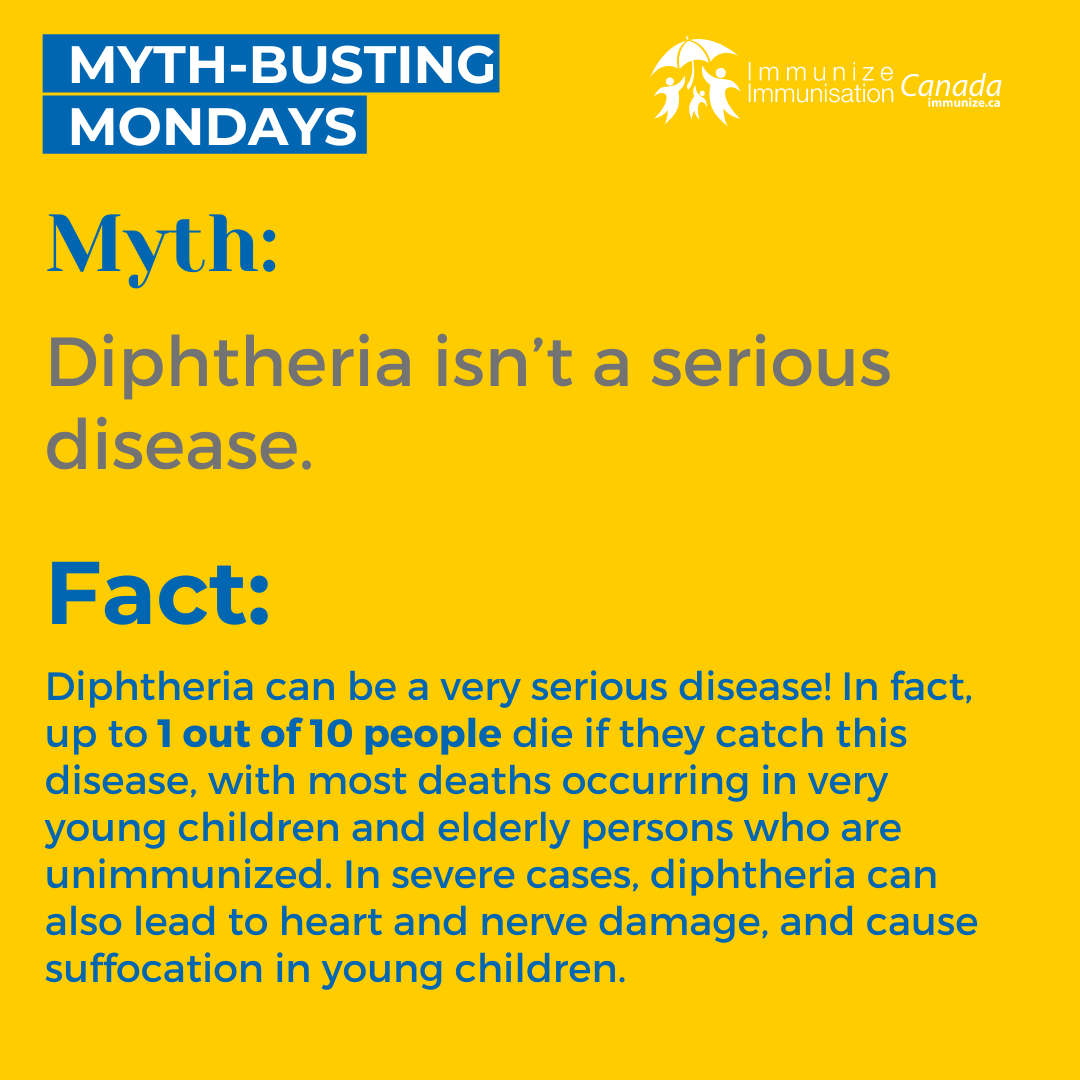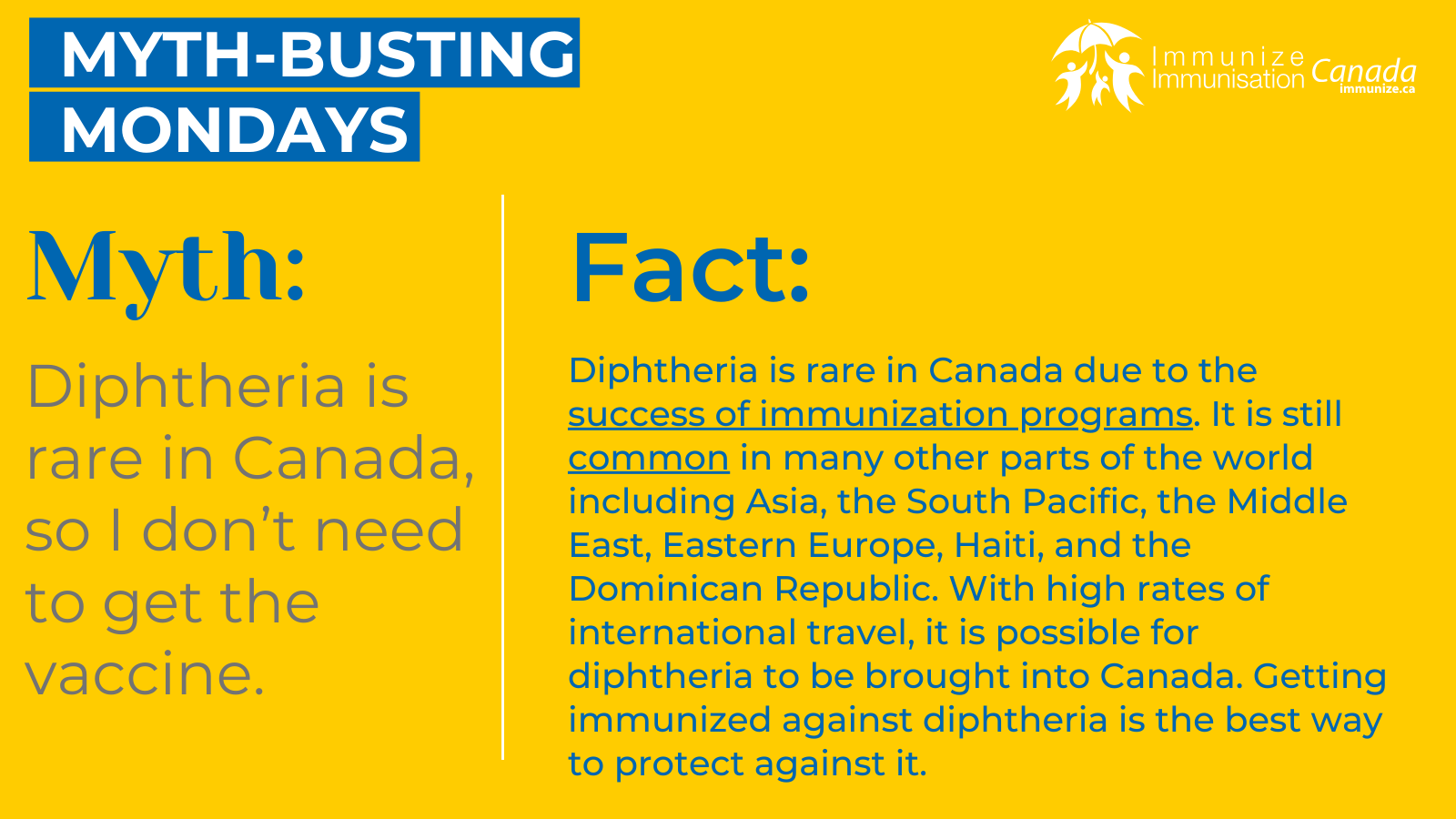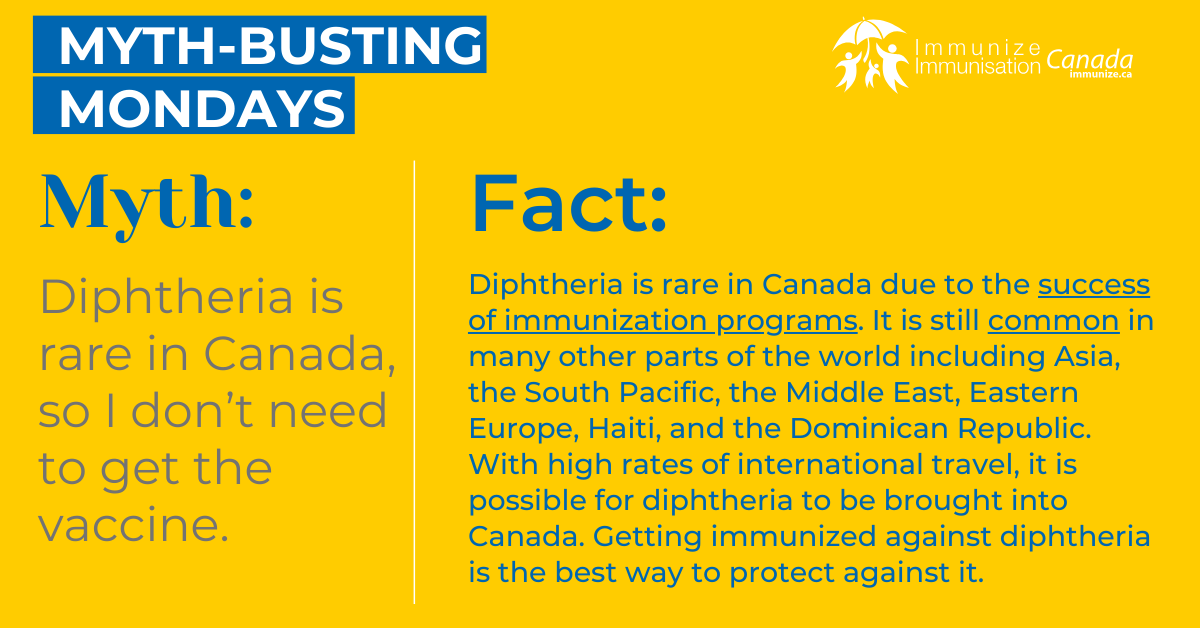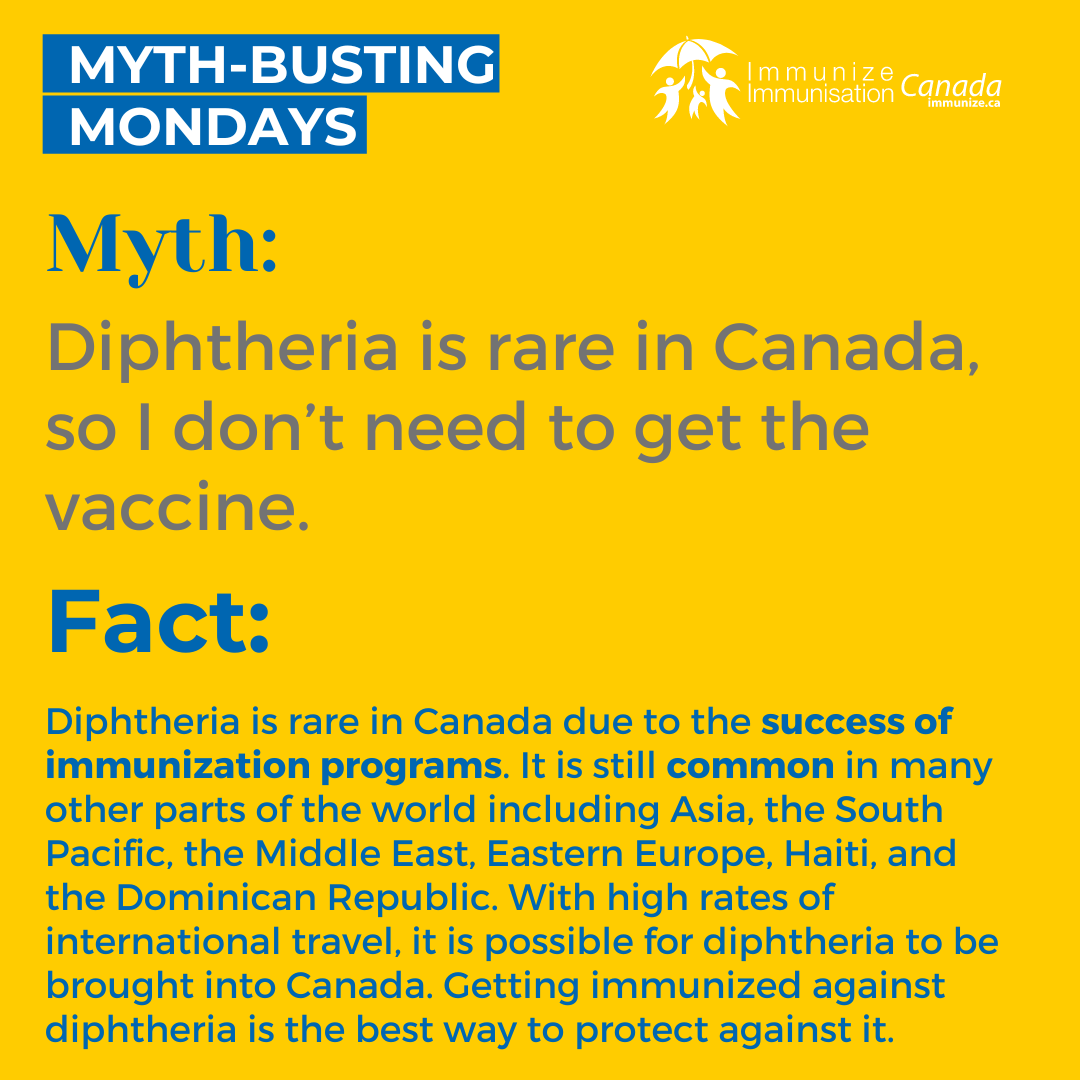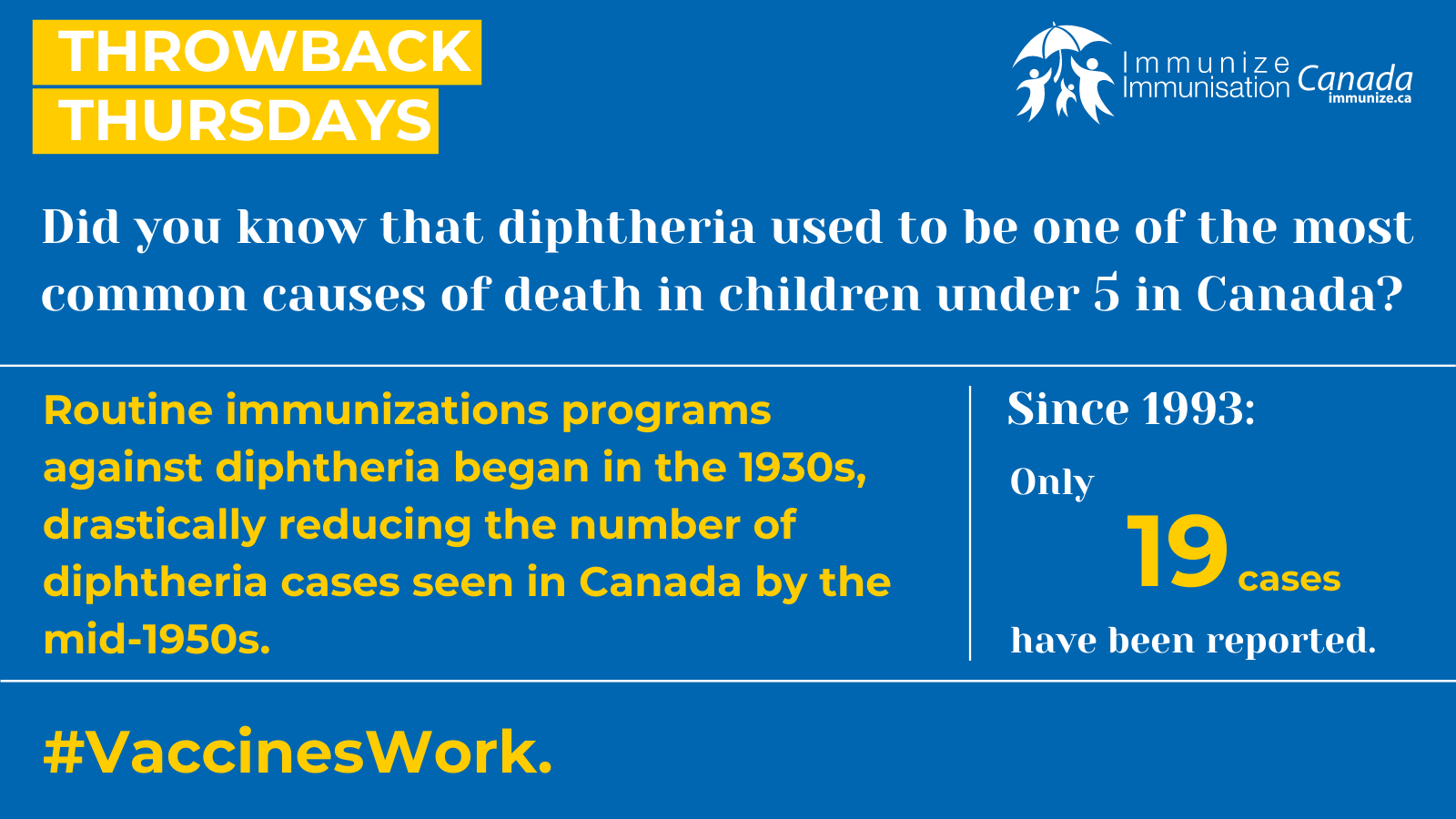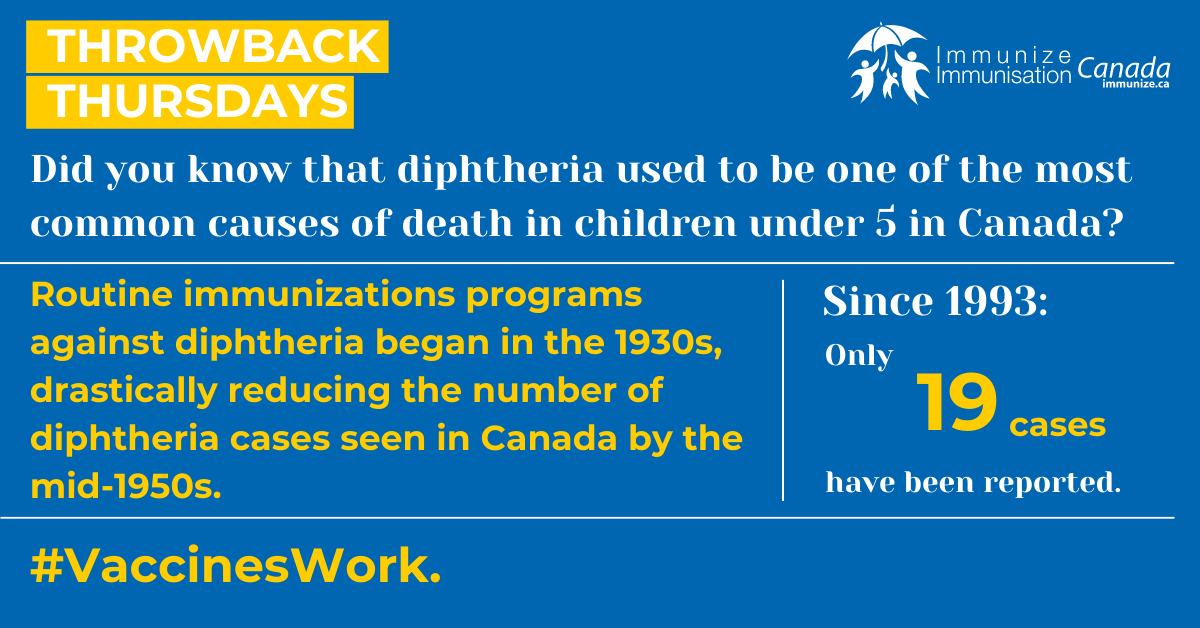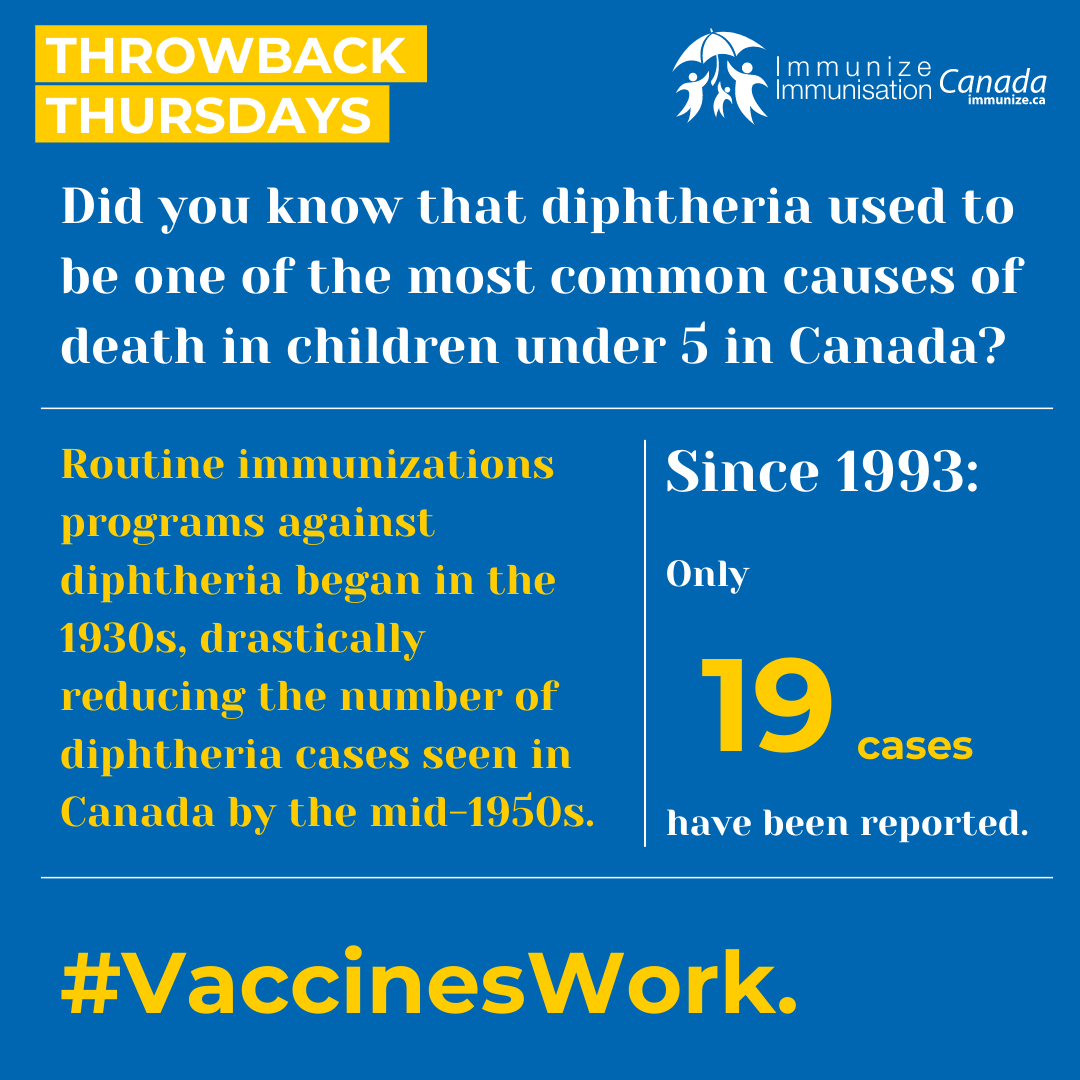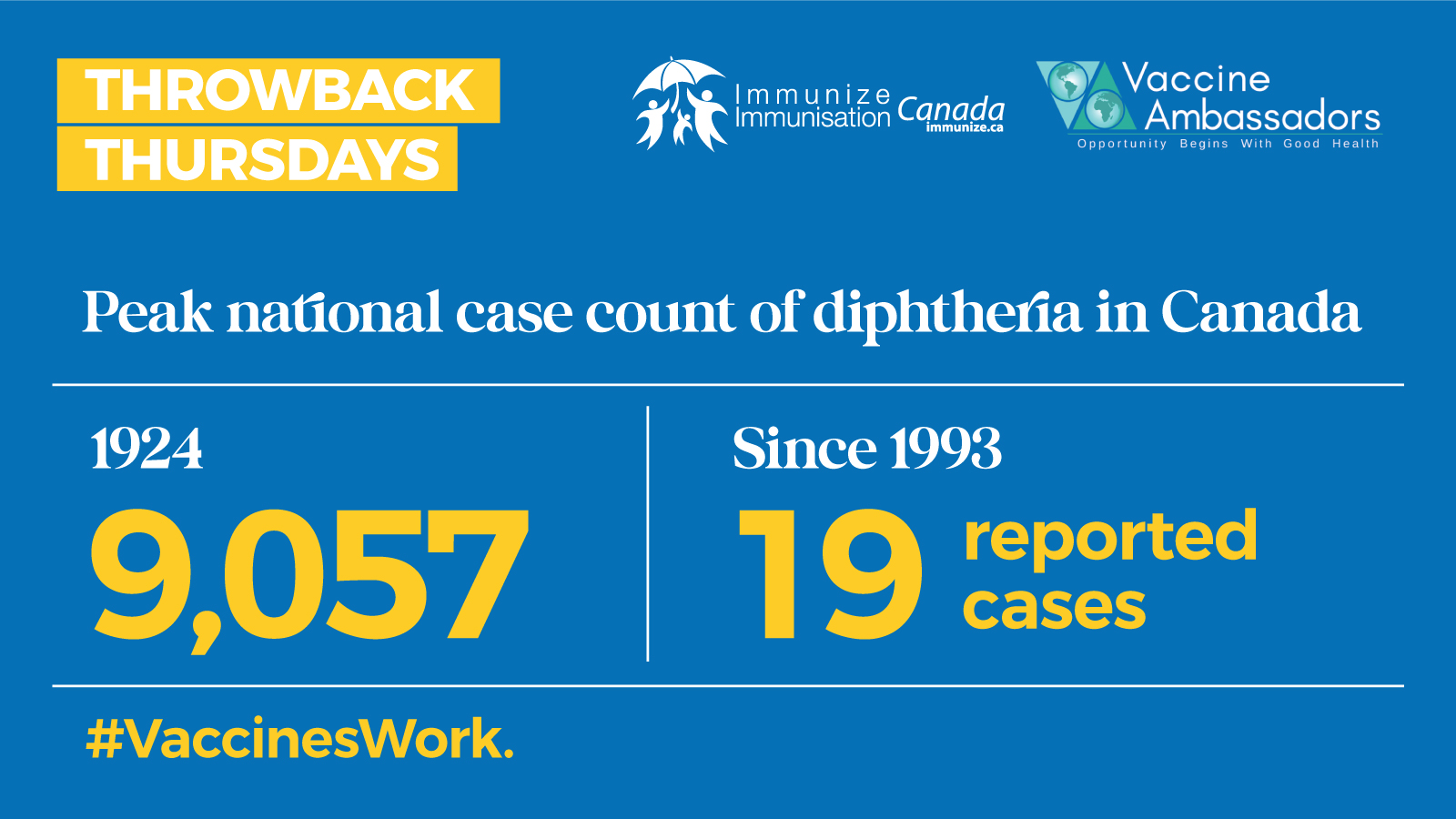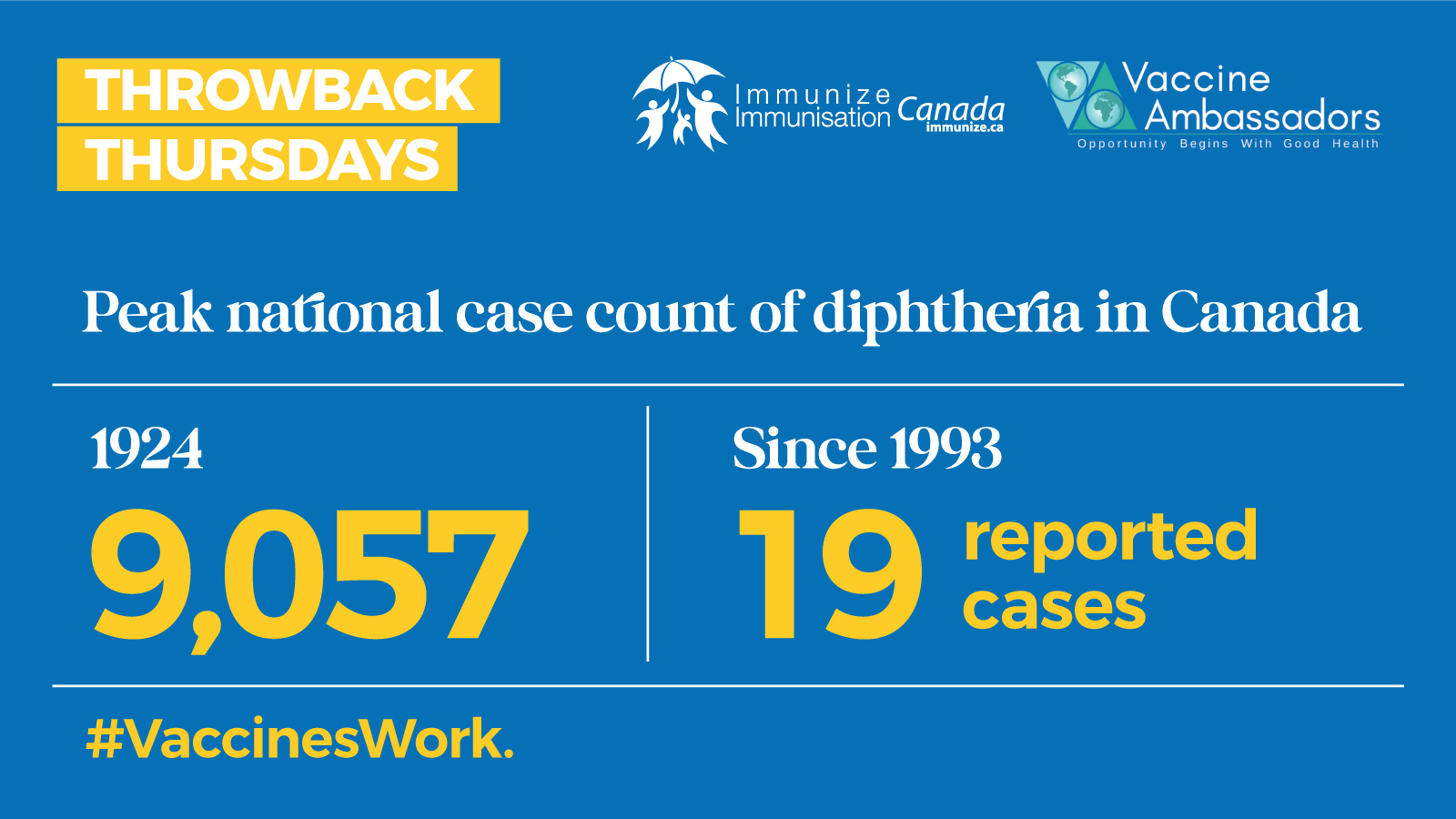Diphtheria
Diphtheria is a contagious bacterial infection caused by strains of bacteria called Corynebacterium diphtheriae. The bacteria infect the upper airways of the respiratory system (nose and throat) and release a toxin that makes us sick. The bacteria can also infect the skin. Diphtheria is spread through close contact with others, such as coughing or sneezing next to someone. It can also be spread through sharing personal items such as drinks, cutlery, and clothing. While diphtheria is rare in Canada, it is common in Asia, the South Pacific, the Middle East, Eastern Europe, and in Haiti and the Dominican Republic. Death occurs in up to 1 out of 10 cases, with most deaths occurring in very young children and elderly persons who are unimmunized. Persons of any age can catch diphtheria. However, it is most serious in infants and very young children.
Check out our resources on diphtheria immunization and share with your network!
Campaigns and Awareness Materials

For the Public
For Healthcare Professionals
Pocket Guide for Immunizers
The purpose of this pocket guide is to serve as a tool for health care providers to learn more about Tdap/DTaP/IPV-containing vaccines, enabling them to make strong recommendations to their patients.
This pocket guide references recommendations made in the Canadian Immunization Guide Chapters on Tetanus, Diphtheria, Pertussis, and Polio, from the National Advisory Committee on Immunization (NACI).
NACI Statements
Campaigns and Awareness Materials
Posters
Social Media Images
-
Myth-busting Mondays
Throwback Thursdays
Videos
Let’s go over what diphtheria is.


